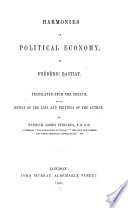 | Frédéric Bastiat - Economics - 1860 - 580 pages
...Economist ; " First, to the increase of dexterity in every particular workman ; secondly, to the saving of time, which is commonly lost in passing from one species of work to another ; thirdly, to this, that men are much more likely to discover easier and readier methods of attaining... | |
 | James Stuart Laurie - Economics - 1864 - 106 pages
...Smith to three. "First, the increase of dexterity in every particular workman ; secondly, the saving of time which is commonly lost in passing from one species...labour, and enable one man to do the work of many." Mr. Babbage has drawn attention to another advantage derived from the minute division of labour which... | |
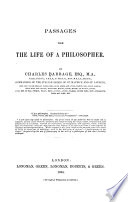 | Charles Babbage - Mathematicians - 1864 - 544 pages
...particular workman. 2nd. The saving of time lost in passing from one species of work to another. 3rd. The invention of a great number of machines which...labour, and enable one man to do the work of many. These are undoubtedly true causes, but the most important cause is entirely omitted. The most effective... | |
 | Charles Babbage - Mathematicians - 1864 - 574 pages
...lost in passing from one species of work to another. 3rd. The invention of a great number of macliines which facilitate and abridge labour, and enable one man to do the work of many. These are undoubtedly true causes, but the most important cause is entirely omitted. The most effective... | |
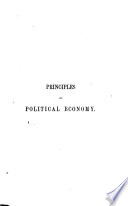 | John Stuart Mill - Economics - 1866 - 628 pages
...three. "First, the increase of dexterity in every particular workman ; secondly, the saving of the time which is commonly lost in passing from one species...abridge labour, and enable one man to do the work of many.'1 Of these, the increase of dexterity of the individual workman is the most obvious and universal.... | |
 | Arthur Latham Perry - Business & Economics - 1866 - 482 pages
...corporeal and intellectual, acquired by the repetition of one simple operation. 2. The saving of the time which is commonly lost in passing from one species of work to another, and in the change of place, position, and tools. 3. The invention of a great number of machines which facilitate... | |
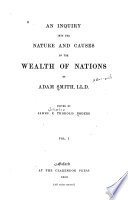 | Adam Smith - Economics - 1869 - 576 pages
...commonly lost in passing from one specieToFwork'To another ; and lastly, to the invention of a great i number of machines which facilitate and abridge labour, and enable one man to do the work of many.^ First, the improvement of the dexterity of the workman necessarily increases the quantity of the work... | |
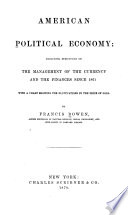 | Francis Bowen - Economics - 1870 - 586 pages
...accountant sums up a column of figures with a quickness that resembles intuition. 2. The saving of the time which is commonly lost in passing from one species of work to another, and in the change of place, position, and tools. Thus, says Smith, " a country weaver who cultivates a... | |
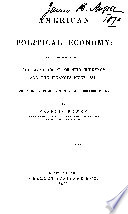 | Francis Bowen - 1870 - 512 pages
...accountant sums up a column of figures with a quickness that resembles intuition. 2. The saving of the time which is commonly lost in passing from one species of work to another, and in the change of place, position, and tools. Thus, says Smith, " a country weaver who cultivates a... | |
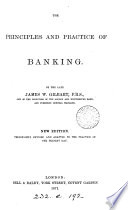 | James William Gilbart - 1871 - 678 pages
...circumstances : first, to the increase of dexterity in every particular workman ; secondly, to tho saving of time which is commonly lost in passing from one species of work to another ; and lastly, to the invention of a great number of machines which facilitate and abridge labour, and enable one... | |
| |